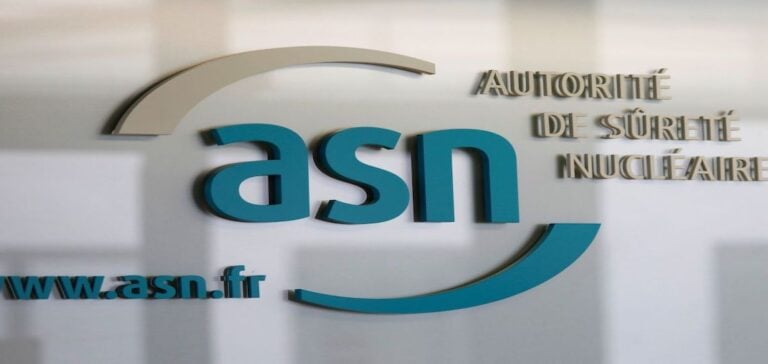The Ministry of Energy Transition has announced that the new bill on the merger of France’s nuclear safetyThe new law, which will apply to the Institut de Radioprotection et Sûreté Nucléaire (IRSN) and the Autorité de Sûreté Nucléaire (ASN), will be specific and will not be incorporated into another bill.
IRSN-ASN nuclear merger: the quest for an independent, safe authority
This assurance was given in response to the concerns expressed by IRSN’s inter-union group, which is firmly opposed to the merger. The government is planning a dedicated parliamentary debate and a specific legislative vehicle to address this issue.
The idea of merging IRSN, the safety expert, and ASN, the nuclear regulator, came about following a meeting of the Nuclear Policy Council at the Élysée Palace. This project had been tried before, but was rejected by Parliament a few months ago.
According to statements from the Élysée Palace, the merger of these two institutions should result in the creation of a new “major independent authority” responsible for making decisions on safety issues for nuclear power plants. This announcement comes a week after the publication of a parliamentary report advocating the merger of the two entities in order to cope with the growing workload associated with current and future nuclear reactors. The government justifies this decision by highlighting the three challenges of the nuclear revival: the extension of the existing reactor fleet, the construction of new EPR reactors and the development of innovative small modular reactors.
Apprehensions and challenges: dissenting voices against the IRSN-ASN merger
However, a number of players in the nuclear sector, including IRSN employees, nuclear experts and members of parliament, have expressed their concerns about the proposed merger. In particular, they fear that experts will lose their independence, skills and ability to express themselves. As nuclear safety is a major issue, they are concerned about the possible consequences of this merger on decision-making and the safety of nuclear power plants in France.
In response to these concerns, Minister Agnès Pannier-Runacher sought to reassure by asserting that fusion will make it possible to adapt nuclear safety to the challenges of the nuclear revival. However, it remains to be seen how the government will address the legitimate concerns of the parties concerned during the ad hoc parliamentary debate.
The bill to merge France’s nuclear safety institutions is proving highly controversial. While the government claims that this merger is necessary to meet the challenges of the nuclear revival, many players in the sector are expressing concern about its impact on the independence and expertise of the institutions involved. The forthcoming parliamentary debate will be crucial in determining the future of fusion and its influence on nuclear safety in France.






















